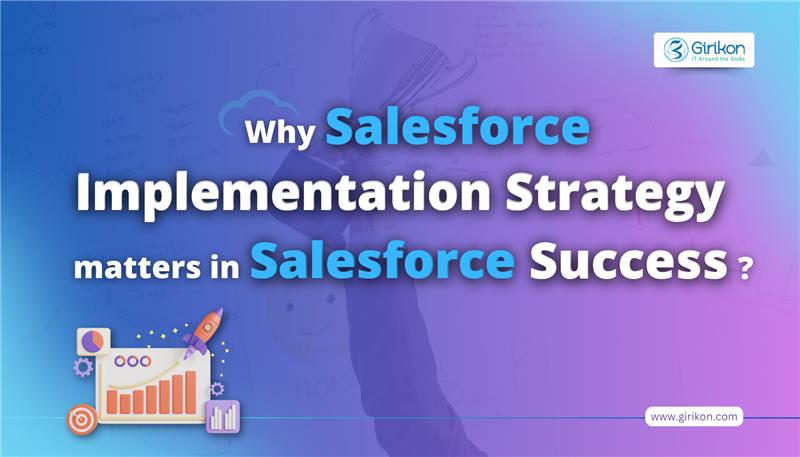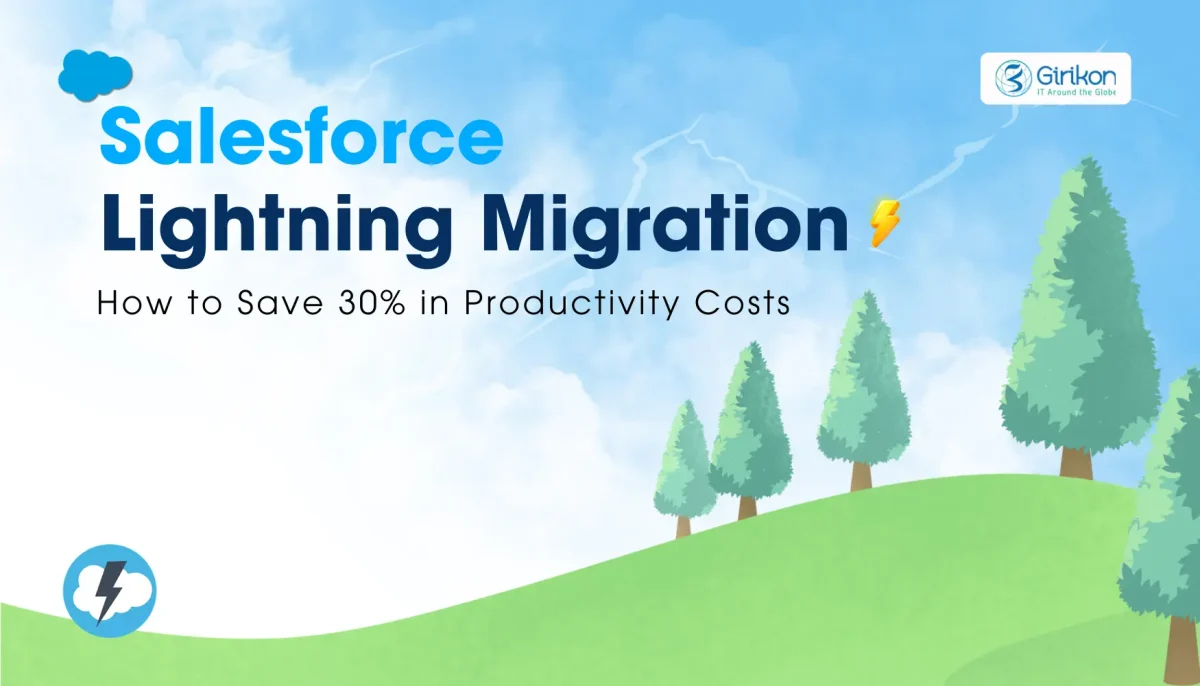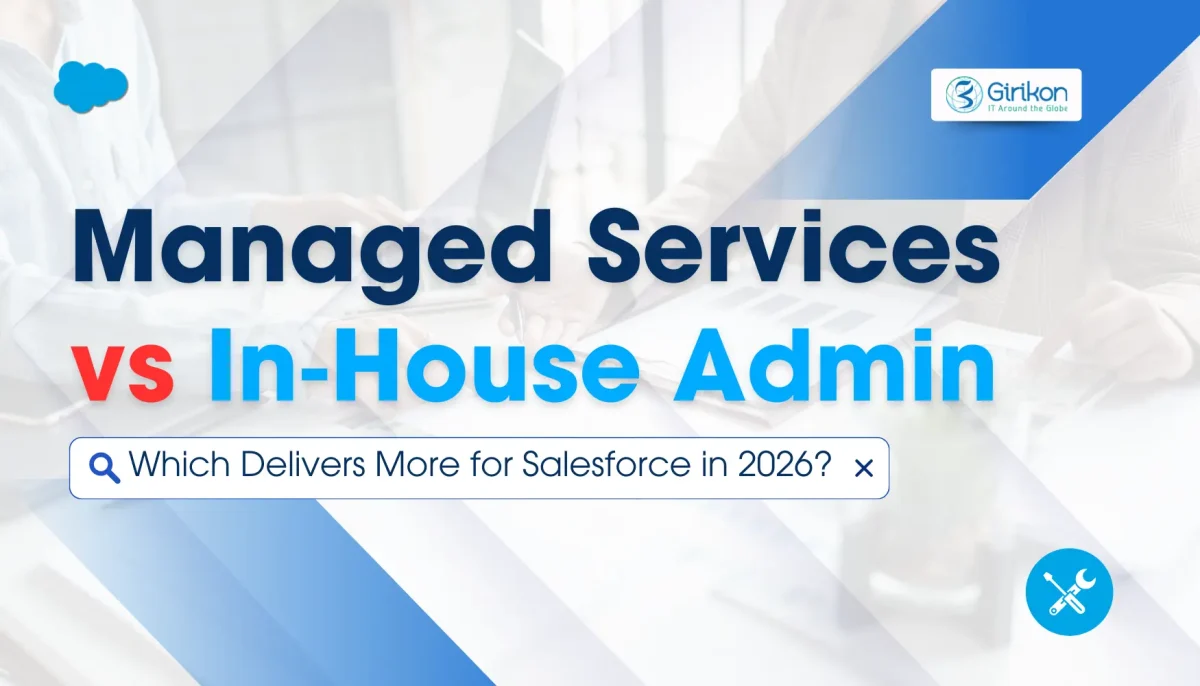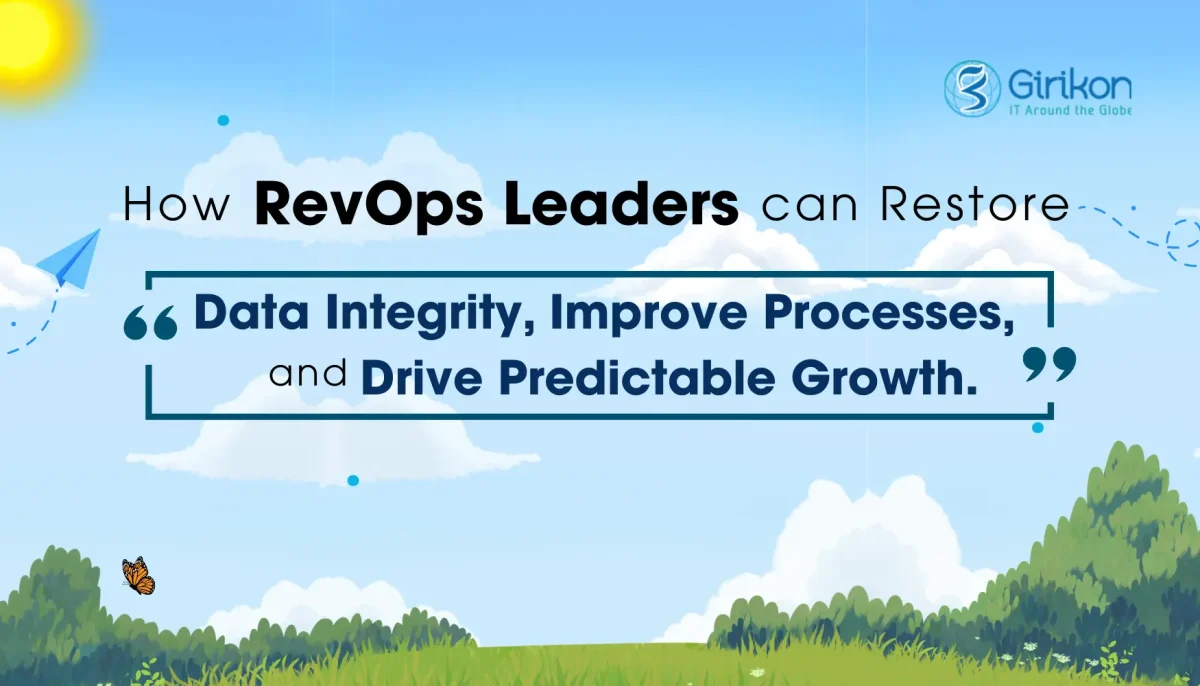Envision a turbocharged sports car which is sleek, effortless in motion and engineered for endless possibility. But, instead of hitting the road, it sits idle with no destination, no plan, and no fuel. That’s what it is like to invest in Salesforce without a well-thought-out strategy brought in by Salesforce implementation partner.

Being the most powerful CRM platform, Salesforce’s real value isn’t just in the features it offers, it’s how you put those features to work for your business goals. That’s where strategy comes in. No matter if you are startup looking to scale fast or an enterprise streamlining global operations, the different between Salesforce becoming your underused tool and the most valuable asset—boils down to how intentionally you implement it.
So, explore the blog throughout and learn why Salesforce strategy is absolutely essential to your success.
Benefits of Having Salesforce Implementation Strategies
When implemented effectively, Salesforce becomes your secret weapon for productivity, growth, and customer delight. It offers an exceptional range of benefits and some of them are provided below:
- Streamlined Customer Support Process
Salesforce supports agents in many ways that ultimately result in unified customer interactions. For instance, it enables agents to access relevant data such as resolution process and case history from the unified customer interaction, thus leading to faster response time. Moreover, the AI service planner will give a step-by-step case resolution, thus keeping your team streamlined on customer support.
- Collaborate and Communicate Better
While different applications are used by businesses for various tasks, Salesforce implementation enables them to conduct various activities and access updated customer information in real-time from the same platform only. Moreover, it provides such real-time and social collaboration tool that allows users to communicate, collaborate, and share information about projects on the go.
- Targeted Marketing and Lead Management
Salesforce implementation allows the marketing team to segment the audience based on attributes to develop highly targeted and personalized campaigns. It also lets marketers focus on interests to weigh high-potential leads. It even provides sales forecasting tools to analyze historical data and customer behavior, leading to improved opportunity management.
Top Strategies for Successful Salesforce Implementation
These are the key measures you should steward for the Salesforce implementation specific to your business needs.
- Drive Organizational Alignment with Involved Stakeholders
One key to ensuring success in the Salesforce implementation is keeping alignment between all stakeholders involved across organizations on different parts. So, ensure that you build trust between those who will be directly influenced by the implementation by letting them understand the reason for implementation and how it is going to influence the team members.
- Configure Human Centric Experience
While implementing CRM with the help of Salesforce implementation partners, it is essential to craft a human-centric solution by considering the end users is essential. It lets you build such a solution that is intuitive, adaptable, and aligned with real user needs. Therefore, you must ask your end users about the common pain points to eliminate them entirely in providing customer satisfaction. This will not only drive higher adoption but lead to long-term success and productivity.
- Leverage the Full Potential of Your Data
Today, a large number of organizations make critical choices using outdated and unrealistic information. If you belong to the same, it’s time to change your approach by relying only on the clean data. But how will you do it? By accumulating all customer data from distinct systems into Salesforce. This will let you create a complete picture of each customer by eliminating duplicate records and maintaining the data accuracy.
Types of Salesforce Implementation Strategies to Adopt
Knowing what Salesforce deployment approach you must adopt, lets you make the best choice. So, let’s explore different strategies below:
- Big Bang Approach
The Big Bang strategy, also known as large-scale implementation, includes a complete execution of the process and existing system into a single process. Most startups, small businesses, and medium-sized organizations use the strategy to move all users to the Salesforce. Because it is faster and cheaper than other approaches. Also, it provides a higher ROI as all resources are focused on change management at the same time.
- Managed Approach
In this approach, the Salesforce managed service providers take complete responsibility of the project—no matter if it is about planning, data migration, configuration, use training, and going live. Leveraging the approach, you can easily get in-depth implementation from Salesforce implementation partner. Moreover, it helps you eliminate all risks and complexities, fostering faster processes.
- Self-Managed Approach
Within the self-managed approach, organizations have the sole responsibility to manage the implementation with their technical expertise and resources. As this type of implementation comes under the businesses with full control and results, this can prove to be more cost-effective, but with more delays and implementation issues.
- Phased Approach
Just like the name suggests, it enables businesses to implement the existing Salesforce platform in different stages, which is helpful for larger enterprises that want to gradually shift to a new platform. However, its long procedure makes it more expensive and time consuming in nature. Also, teams require to gain more knowledge with each stage to enhance configuration and implementation.
- Hybrid Approach
Hybrid approach is the combination of self-managed and managed strategies. That means businesses are allowed to manage some aspects on their own, while Salesforce consultants are responsible for only the specific parts of implementation. This allows businesses to make the most of technical expertise while considering team knowledge over specific phases of the projects.
In a Nutshell!
From aligning Salesforce implementation partners to creating human centric experiences and choosing the right deployment strategy, your approach should always reflect your unique business challenges, goals, and user needs. That’s why you must consider taking a phased route or striking a balance with a hybrid approach.
So, how?
With the help of Salesforce implementation experts that will have you put your users at the center of every decision, thus setting the foundation for stronger customer relationships, lasting success, and future-proof CRM.

 +1-480-241-8198
+1-480-241-8198 +44-7428758945
+44-7428758945 +61-1300-332-888
+61-1300-332-888 +91 9811400594
+91 9811400594



















